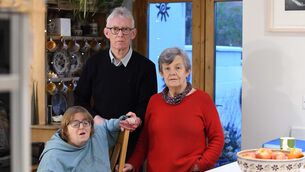Pope Francis - Accepting the greatest challenge
The sense of expectation among the million-strong crowd in Washington that day — a record for the city — was palpable and was reflected not just across America but across most of the western world. It went far beyond the excitement created by the fact history was being made by the inauguration of the first African-American as president of the United States.
President Obama encouraged that optimism by using a phrase from Abraham Lincoln’s Gettysburg Address — “a new birth of freedom” — as his inaugural theme. He referred to the uplifting ideals expressed by Lincoln about renewal, continuity and national unity. In hindsight, he created a burden of expectation so great that it could never be realised. Indeed, his first term fell so short of what he had promised that his re-election was not at all certain.














